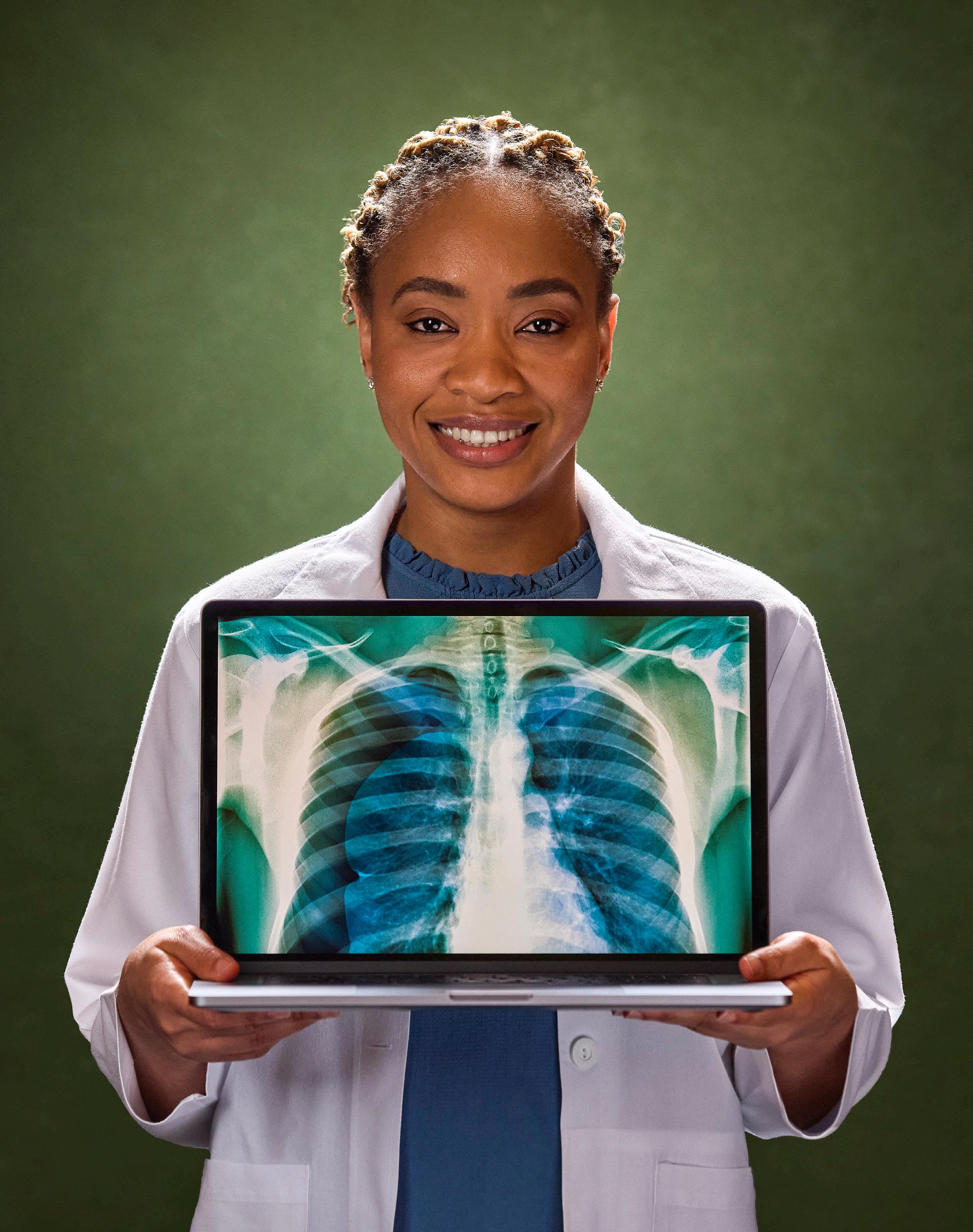
3 minute read
ANATOMY OF A FELLOWSHIP
Dr. Chidinma Ejikeme is a postdoctoral fellow in the field of pulmonary disease and critical care
A Day In The Life Of A Pulmonary Subspecialist In Training
A little before 7 a.m., pulmonary and critical care fellow Dr. Chidinma Ejikeme works with an anesthesiologist to set up equipment and supplies for the first patient of the day. Together, they review the case and discuss an anesthesia plan.
When the patient arrives 30 minutes later, Dr. Ejikeme and other fellows assist — and learn — as the managing anesthesiologist administers medications, intubates the patient and monitors progress. It’s an intricate dance the young physician will partner in for seven more cases today, breaking only for a quick lunch before wrapping up patient care at about 4 p.m.
One of 372 Houston Methodist graduate medical education residents and fellows, Dr. Ejikeme is in her second year of a three-year postdoctoral fellowship in pulmonary disease and critical care. By subspecializing in this field, she aims to provide the most expert emergency medicine to patients suffering from ailments and diseases of the respiratory system, primarily of the lungs, trachea, diaphragm and related structures.
Through a primary national academic affiliation with Weill Cornell Medical College, Houston Methodist offers fellows a rotation of 13 “blocks” that span approximately four weeks each. Dr. Ejikeme is currently in the anesthesia and thoracic surgery rotation; about half of the rotations in her three-year fellowship are in her focus area. In the advanced pulmonary and critical care blocks, she serves as the junior attending physician, helping to manage the medical intensive care unit and the medical students who report to her.
“It’s exciting to perform as the attending physician that we aspire to be, and I love that,” she says with a smile.
Dr. Ejikeme’s interest in medicine began as a child in her native home of Nigeria, but her path to critical care medicine was paved by watching her dear “fun uncle” and her grandfather battle cancer. “I had planned to become a doctor, but I knew then that I really wanted to help people who were critically ill,” she relays.
While those experiences attracted her to the field, the appeal of working on a spectrum of diseases — from the common to the rare — and the chance to learn from professors on both national and international research trajectories were what drew her to Houston Methodist.
Training the next generation of experts to tackle health care’s toughest challenges is central to Houston Methodist’s identity as an independent academic medical center. “I’d choose Houston Methodist for my fellowship again — the kind of training we get here sets us apart,” Dr. Ejikeme says.
Indeed, her fellowship at Houston Methodist speaks to the future of medical innovation and discovery. “Our hope is to diagnose earlier and treat better using new technologies, including artificial intelligence, to improve mortality and morbidity rates in our patients,” she explains. “In the future, will we be able to see the blockage or other condition at a smaller size than we see it now and treat cancer earlier? I think in a few years we will be able to do that.”










